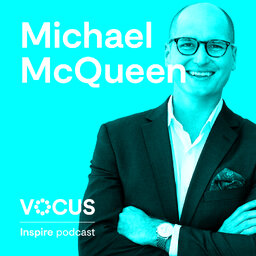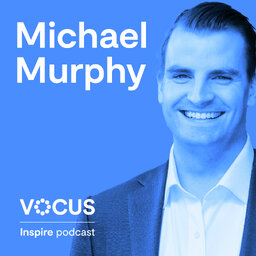How will you get to net-zero: the risks and opportunities
In this episode, we discuss some of the biggest challenges facing business and government today – the risks and opportunities on the path to net-zero. In the words of our guest Aidan Ashton, Decarbonisation and Climate Risk Specialist from Energetics, “The world of tomorrow won’t play by the same rules as today,” which sets up a great conversation about the things organisations need to do in order to de-risk their future and unlock opportunities for growth.
 Vocus Inspire
Vocus Inspire


